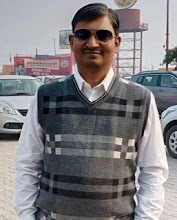SPL (VII)-LESSON-6
-
UNDERSTANDING MEDIA
(LESSON NOTES)
__________________________________________________________
v MEDIA: -
Ø Media is the plural form of the word ‘medium’ and it describes the various ways through which we communicate in society.
Ø It refers to all means of communication, from a phone call to the evening news on TV can be called media. TV, radio, and newspapers are forms of media.
v CLASSIFICATION OF MEDIA
Ø Print Media: -Newspaper, slogan, Magazine, Books Etc.
Ø Electronic media: Tv, Radia, Computer, Internet, Etc.
Ø Personal media: Mobile, Books, Etc.
Ø Mass media: Newspaper, Internet, TV etc.
v MEDIA AND TECHNOLOGY
Ø Changing technology or machines help media to reach more people.
Ø Due to technology world become the part of the global village.
Ø It also improves the quality of sound and the images that you see.
Ø This allows us to view news and entertainment channels from other parts of the world
v MEDIA AND MONEY
Ø The different technologies that mass media use are expensive.
Ø In a news studio, it is not only the newsreader who needs to be paid but also a number of other people who help put the broadcast together.
Ø A lot of money is spent on getting the latest technology. To meet this cost, it needs money.
Ø So, Media has come to be owned by big corporate. Media, therefore, uses advertising as a tool to raise revenue.
v MEDIA AND DEMOCRACY
Ø Media plays a very important role in providing news and discussing events taking place in the country and the world.
Ø Media plays a very important role in our lives as it tells us about working of the government.
Ø New stories of media inform people about important events in the country.
Ø Some important ways by which people can take about important events in the country are organizing public protests, starting a signature campaign, etc.
Ø So, Media is also called as fourth pillar of democracy.
v SETTING AGENDAS
Ø The media also plays an important role in deciding which stories to focus on. By focusing on particular issues, it influences and shapes our thoughts. It is said the media sets the agenda for people.
Ø Very recently, the media reported alarming levels of pesticides in cold drinks. This report led to safety standards being set for colas.
Ø Media should focus on issues that are significant in our lives. But very often it fails to do so. Cricket, fashion shows are very popular with the media.
v BALANCED REPORT
Ø The information that the media provides should be balanced. A balanced report is one that discusses all points of view of a particular story and then leaves it to the readers to make up their minds.
Ø Independent media can write a balanced report. Hence, it is necessary for the media to be independence. But the reality is that media is far from independent.
§ The first is the control that the government has on the media.
§ Where the government prevents either a news item or scenes from a movie, or a lyric of a song from being shared with the larger public, this is known as censorship. During the Emergency period (1975-77) the government censored the media.
§ It has been found out by the persons who research media that business houses control media. It means that the media is not independent.
v LOCAL MEDIA
Ø The media which deals with small issues that involve ordinary people and their daily lives.
Ø Khabar Lahriya, a fortnightly newspaper, is run by eight Dalit women in Chitrakoot district in Uttar Pradesh.
Ø It is written in the local language, Bundeli.
v SOCIAL ADVERTISING
Ø Social advertisements refer to advertisements made by the Government or private agencies that have a larger message for society. For example the advertisement regarding crossing of manned/unmanned level crossings.
v IMPORTANT TERMS:
Ø Media: The word ‘media’ refers to all means of communication, everything ranging from a phone call to the news on television.
Ø Public protest: When people collectively state their opposition to some issue by organizing a rally, starting a signature campaign, etc., it is known as a public protest.
Ø Balanced report: A balanced report is one that discusses all points of view of a particular story and then leaves it to the leaders to make up their minds.
Ø Censorship: The government has the power to disallow media from publishing or showing certain stories. This means that the government can censor the media.
Ø Broadcast: A TV or radio programme that is widely transmitted.
Ø Setting Agenda: One of the important functions of media is that it decides what stories should be focused on and thus decides on what is newsworthy. This is often said that the media sets the agenda.
Ø Local Media: It deals with small issues that involve ordinary people and their daily lives. It publishes news of local importance.






No comments:
Post a Comment